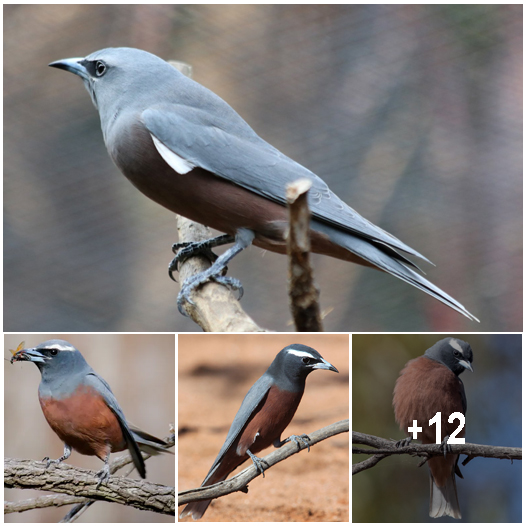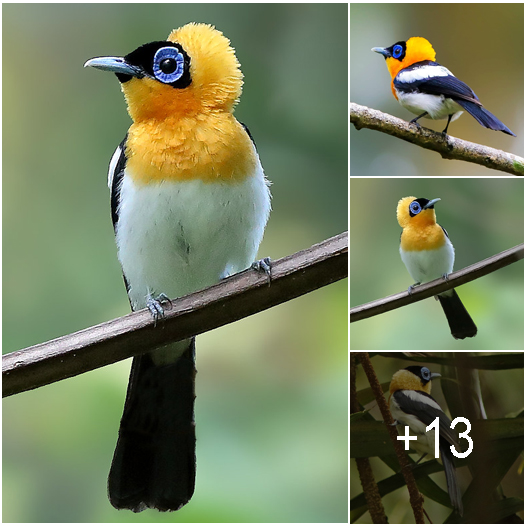The Red-crested Cardinal (Paroaria coronata), also known as the Brazilian Cardinal or the Crested Cardinal, is a striking bird species native to South America. With its vibrant plumage and distinct red crest, this avian beauty has captivated bird enthusiasts and nature lovers alike. In this article, we will delve into the fascinating characteristics, habitat, behavior, and conservation status of the Red-crested Cardinal.
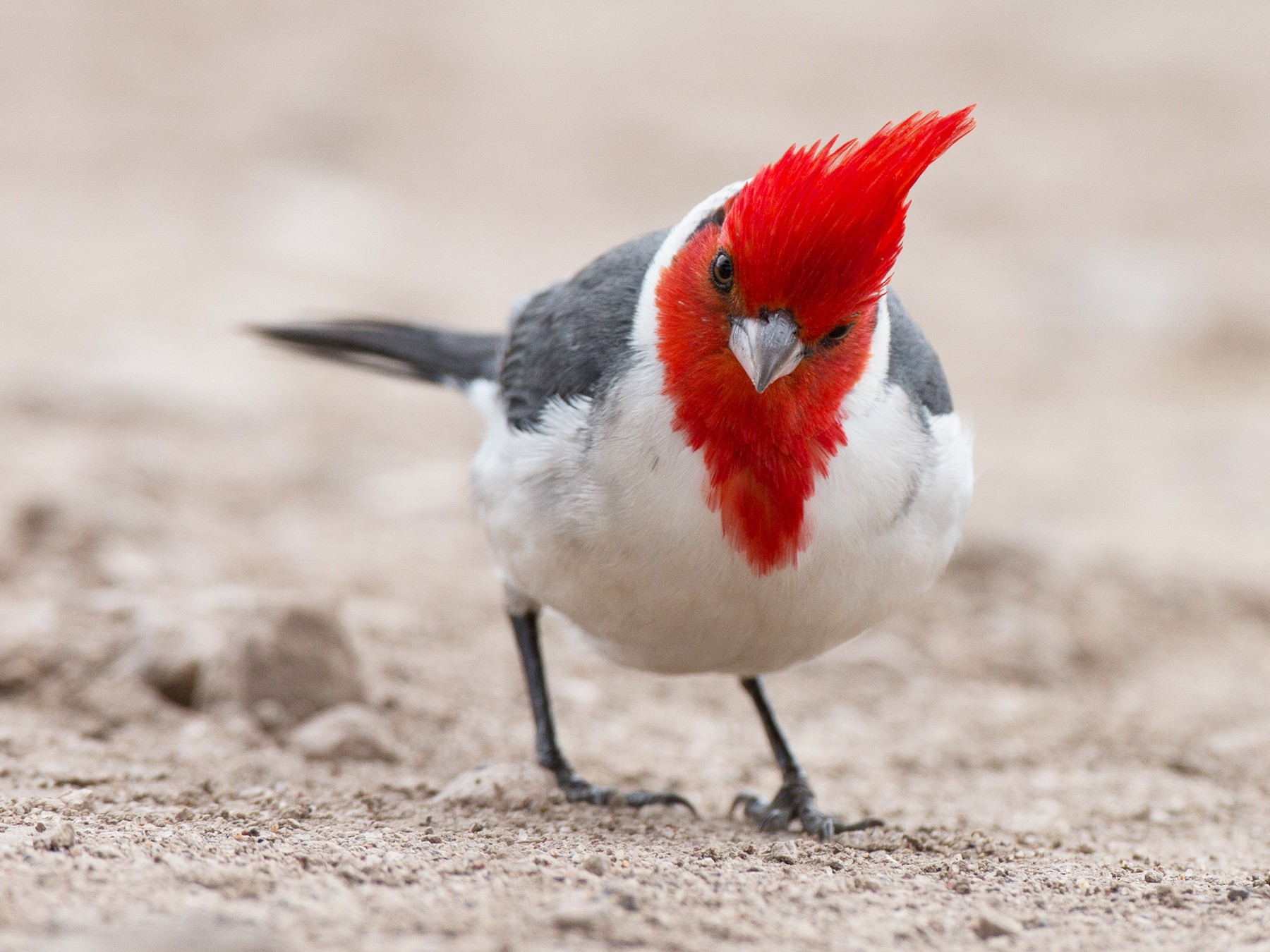
The Red-crested Cardinal is a medium-sized bird, measuring approximately 17 centimeters in length. The males of this species boast a vibrant scarlet crest atop their heads, which stands out vividly against their predominantly black plumage. The females, on the other hand, display a more subtle reddish-brown crest and have a combination of gray, black, and white feathers. Both genders exhibit a black mask around their eyes, enhancing their distinctive appearance.
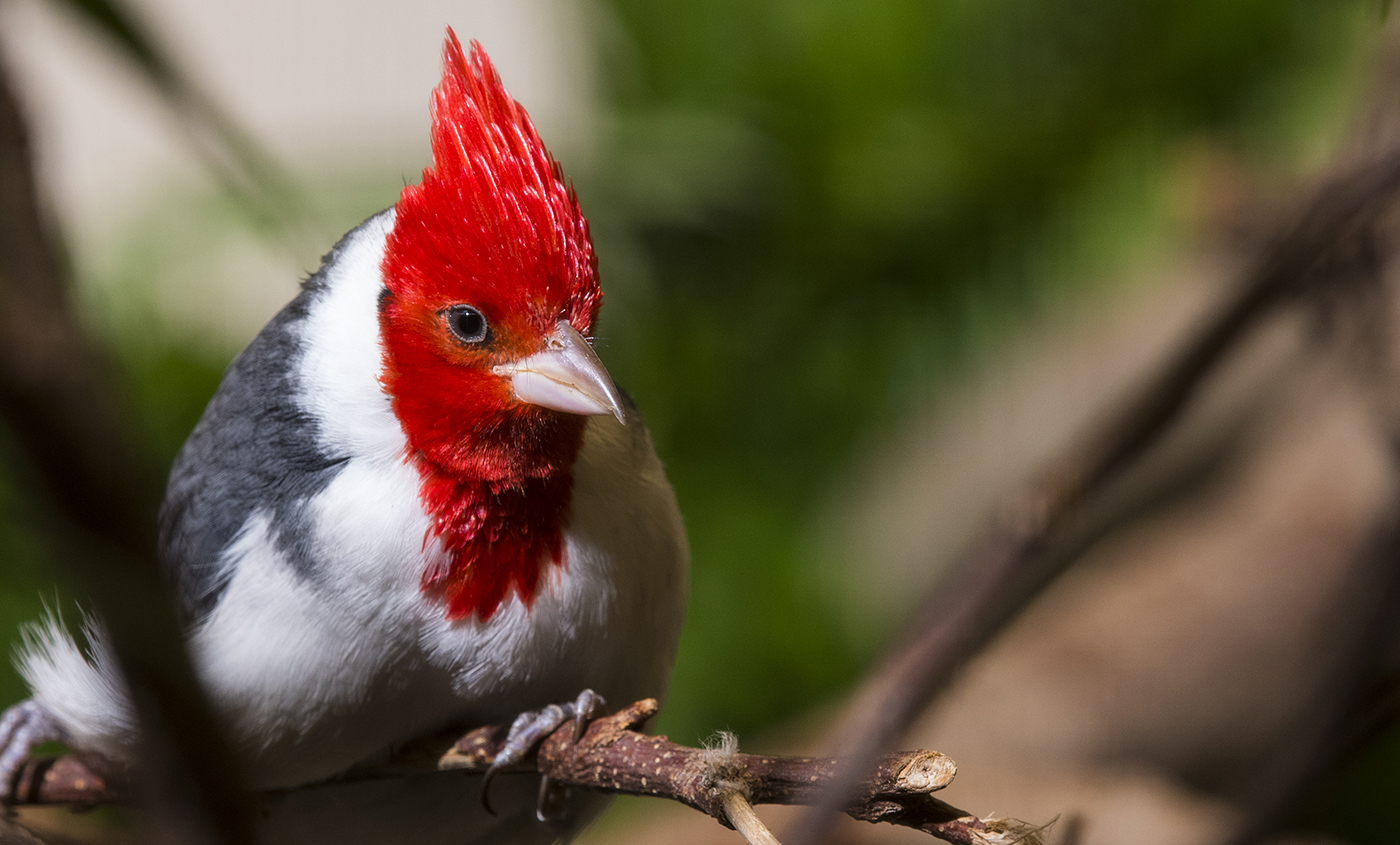
The Red-crested Cardinal is primarily found in the tropical regions of South America, including Brazil, Argentina, Paraguay, and Uruguay. Within these countries, they inhabit a variety of environments, ranging from open grasslands and savannas to forest edges and urban parks. Their adaptability has allowed them to thrive in both natural and human-altered landscapes.

These cardinals are social birds, often seen in pairs or small flocks. They are known for their melodious songs, which consist of a variety of whistles and trills. During courtship displays, the male Red-crested Cardinal will often sing while fluffing its feathers and raising its crest to attract a mate.
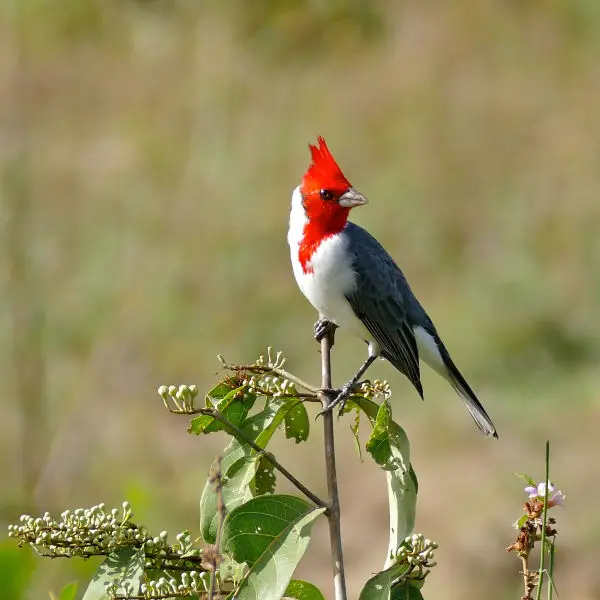
In terms of diet, the Red-crested Cardinal is omnivorous. Its primary food sources include seeds, fruits, insects, and occasionally small vertebrates. Their strong beaks are well-suited for cracking open seeds and extracting insects from tree bark, allowing them to take advantage of a wide range of food resources.
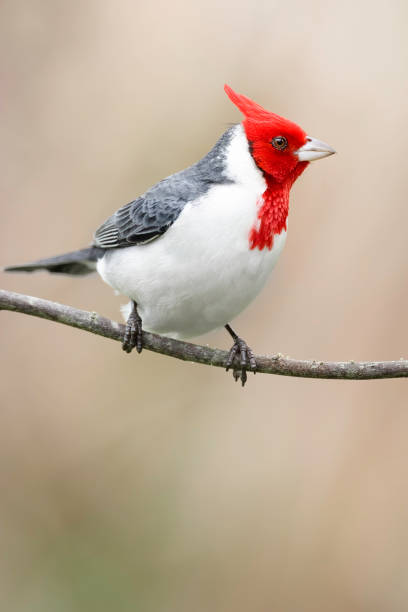
While the Red-crested Cardinal is not currently listed as globally threatened, localized declines have been observed in certain regions due to habitat loss and fragmentation caused by urbanization and agricultural expansion. However, their adaptability to different habitats has helped maintain stable populations in many areas.
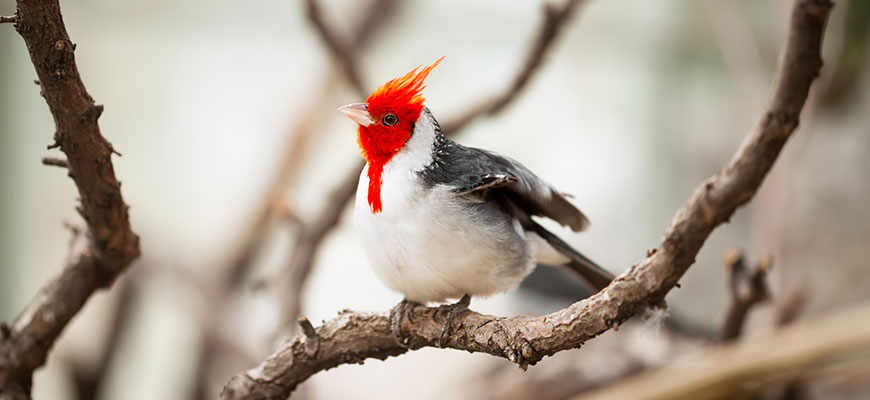
The Red-crested Cardinal is undoubtedly a remarkable bird species with its striking appearance and captivating behavior. Its vibrant plumage and melodic songs make it a favorite among bird enthusiasts and photographers. Nevertheless, it is crucial to raise awareness about the potential threats they face and promote conservation efforts to protect their habitats. By appreciating and safeguarding the Red-crested Cardinal, we contribute to the preservation of South America’s rich biodiversity and ensure the survival of this magnificent avian icon for generations to come.
